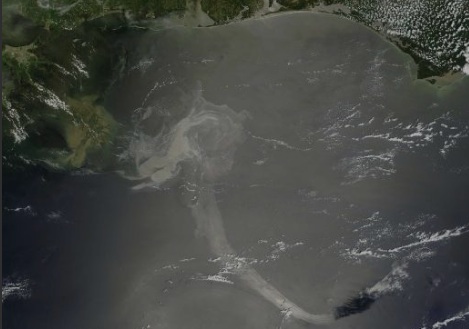As oil continues to pour into the gulf, many of us feel overwhelmed, unable to respond usefully in the face of such devastation. Much has been made of the power of social media and mobile phones to organize people and spur fundraising efforts during times of crisis, but SMS donations only go so far. We live in times of unprecedented social connectedness, with technologies that would have appeared miraculous a generation before. Is texting $10 to our charity of choice the best we can do with these revolutionary tools in times of disaster?

Crisis Commons points to another way to utilize technology and social platforms. Formed in March 2009 at a Tweetup, Crisis Commons is a collective of coders developing applications and platforms for hands-on use in a disaster. As they describe on their website, "the Crisis Commons community works with responders, NGO’s, governments and citizens in identifying needed technology solutions and then either connects them with existing communities or seeks to build new solutions, integrate them into workflows and find sustainable models."
To date, the organization has developed useful tools in response to both the Haiti Earthquake disaster and the gulf oil spill. Crisis Commons was involved in developing Google's Haiti Person Finder, which connected people looking for loved ones with people who had information on missing individuals, and developed an open-sourced GPS map of Haiti in the wake of the earthquake.
Their latest, and most sophisticated, tool to date is Oil Reporter, an open-data app designed for iPhones and Android handsets. (They're currently looking for developers capable of porting the app to Blackberry, Windows Mobile and Palm.) The app allows users to share on-the-ground observations and data with response organizations and the public, capturing and aggregating geotagged photos, video, text, and basic GPS-located data points about the presence of oil and endangered wildlife. In development is an Adopt-A-Beach service that will allow volunteers to coordinate their reporting efforts and avoid covering stretches of land that have already been reported. In addition, the open nature of the platform allows response organizations to customize the app to serve their particular needs.
In light of the oil spill's unremitting devastation, reporting tools for gulf coast residents with smartphones might seem like a minor win. But tools that allow direct response to disasters in our midst remain valuable. In time, they could become crucial. As the tools and the technologies become more sophisticated, so will the disaster-response platforms that projects such as Crisis Commons develop. This is a level of engagement far greater than a texted donation: it points to a new way for communities to engage and help one another in real time during times of crisis.









